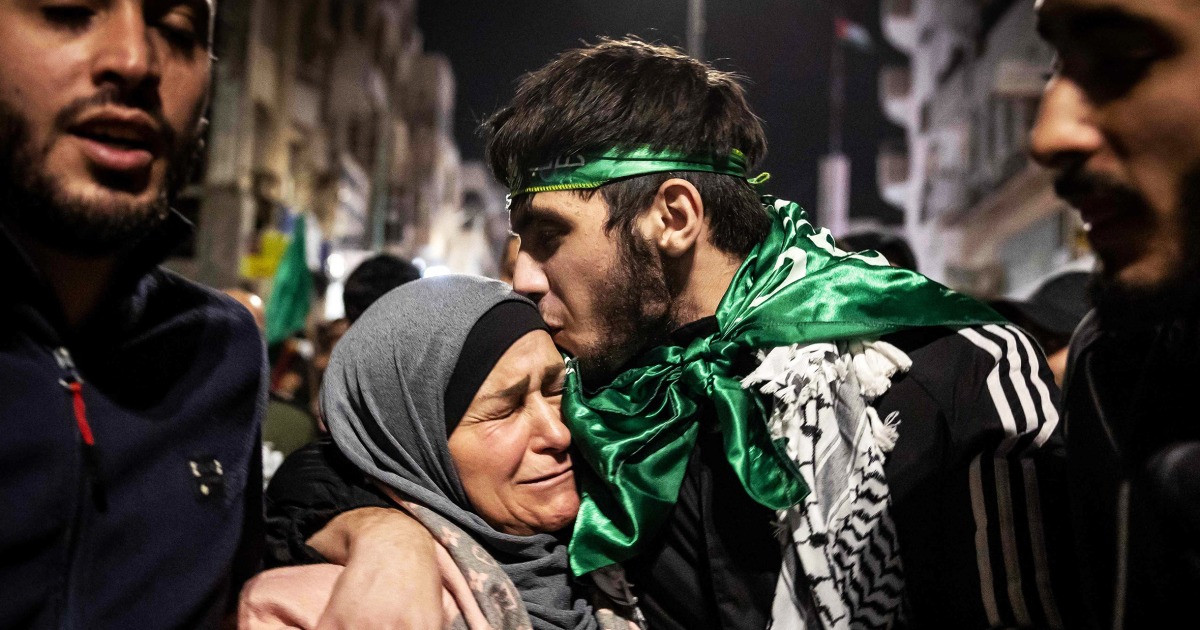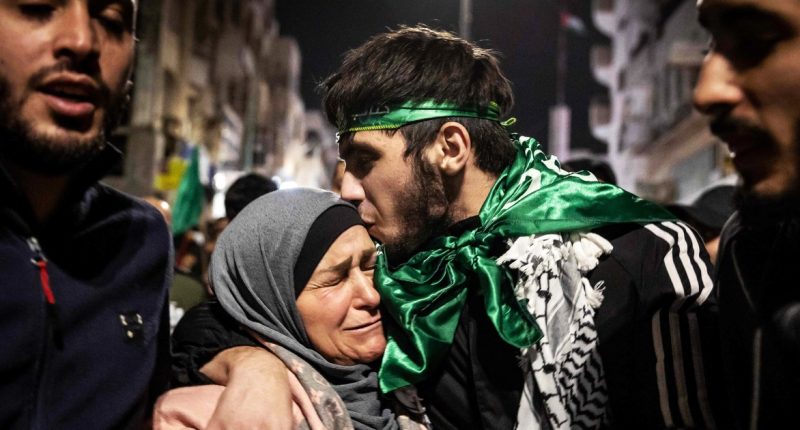
Roughly 80% of those on the list were not convicted of any crimes. They were either charged with crimes that had not yet been prosecuted, or were detained under a practice known as administrative detention, whereby Israel holds Palestinians in the occupied territories with no formal charges or evidence presented against them.
Khatib says his son was held under administrative detention.
Israeli, Palestinian and international human rights organizations have long condemned the practice of administrative detention, particularly when applied to children. And Palestinians in the West Bank describe it as one of many oppressive and humiliating aspects of life under military occupation.
“Israel is a country that routinely grabs kids and throws them in prison, with the ability to keep them there indefinitely without charge or trial,” said Diana Buttu, a lawyer and former adviser to the Palestine Liberation Organization.
Israel’s use of administrative detention was increasing even before Hamas’ attack Oct. 7, according to data compiled by the Israeli human rights organization B’Tselem: In September, Israel was holding approximately 1,310 Palestinians in administrative detention, of whom 23 were minors, according to the organization, which compiles its reports from data provided by the Israel Prison Service.
Human rights organizations also criticize the fact that the practice of administrative detention applies only to Palestinians living in the West Bank — which much of the world, including the United States, has considered illegally occupied since the 1967 Arab–Israeli War — and not to Jewish settlers or other Israeli citizens.
“This is two systems, two ways of treating people,” said Shawan Jabarin, executive director of Al-Haq, a human rights organization based in Ramallah.
When asked about the practice of placing minors and other Palestinians in administrative detention without charge or trial, an Israel Prison Service spokesperson responded in a statement that “all prisoners in IPS custody are detained according to the provisions of the law.”
The statement added: “All prisoners and detainees have the right to file a complaint, which will be fully examined by official authorities. We are not aware of the claims raised here and therefore cannot specifically relate to them.”
Even after being released, some prisoners and their families say they feel under Israeli control.
Source: | This article originally belongs to Nbcnews.com










